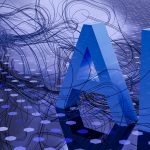When it comes to the academic world, the United Kingdom has an illustrious legacy. Its educational institutions boast world-class research facilities, have produced Nobel laureates and renowned intellectuals, and consistently appear in top positions in global university rankings. But the ever-evolving global academic environment poses significant challenges for universities, demanding innovative solutions to maintain their leading positions. In this scenario, artificial intelligence (AI) emerges as a formidable ally. How can AI support UK universities in enhancing academic performance? Let’s explore this question in detail under the following key areas.
1. AI in Learning and Teaching
In the realm of learning and teaching, AI has the potential to revolutionize how education is delivered and consumed. Gone are the days when education was a one-size-fits-all model. Today, educators recognize the diversity of learning styles among students and strive to cater to this diversity. AI can play a pivotal role in this endeavour.
Also read : What Are the Benefits of AI in UK Public Transportation Systems?
Artificial intelligence allows for personalised learning experiences. Algorithms can identify individual learning patterns, strengths, and weaknesses, allowing professors to tailor their instruction accordingly. For example, AI can track a student’s progress in a particular subject and suggest additional resources to overcome difficulties in understanding complex concepts.
Moreover, AI-powered chatbots can provide students with round-the-clock academic support. They can answer queries, give reminders about assignment deadlines, and provide timely feedback, thereby enhancing the overall learning experience.
Have you seen this : What Are the Key Trends in AI for Enhancing UK Public Safety?
2. AI in Academic Administration and Student Services
Beyond the classroom, AI can revolutionise administrative processes in universities, making them more efficient and student-friendly. Universities today are complex institutions that handle a large amount of data from various departments, from admission and enrolment to academic records, financial aid, and campus services. Managing these can be a daunting task, but not for AI.
Universities can leverage AI-enhanced software to streamline administrative tasks, such as scheduling, record-keeping, and processing applications. These systems can track student performance, notify staff of potential issues, and automate routine tasks, enabling educational institutions to focus their energies on core academic activities.
AI can also enhance student services. For instance, AI-powered predictive analysis can help identify struggling students, allowing universities to provide timely intervention and support. Furthermore, AI can aid in designing effective course schedules, balancing faculty workload, and predicting future enrolment trends, enhancing overall institutional efficiency.
3. AI in Research and Innovation
Research and innovation are at the heart of higher education. They are crucial for advancing knowledge, addressing societal challenges, and driving economic growth. Therefore, the integration of AI in research activities is a natural development.
AI can expedite the research process by automating routine tasks, such as literature reviews and data collection. Machine learning algorithms can analyze large datasets faster and more accurately than humans, enabling researchers to gain insights and draw conclusions more effectively. Furthermore, AI can facilitate interdisciplinary research by identifying patterns and connections that might otherwise go unnoticed.
AI can also stimulate innovation by enhancing creativity and problem-solving abilities. AI-powered tools can help researchers explore different approaches, generate new ideas, and simulate various scenarios, thereby fostering a culture of innovation.
4. AI in International Collaboration
In a globalised world, international collaboration is vital for academic success. It allows universities to pool resources, exchange ideas, and work on joint projects, thereby elevating their academic standing. Here too, AI can make a significant contribution.
AI can facilitate international collaboration by overcoming barriers of time, distance, and language. Virtual conferencing tools powered by AI can enable real-time communication and collaboration among researchers located in different parts of the world. Furthermore, AI-powered translation services can break language barriers, making it easier for researchers to access and share knowledge across borders.
Moreover, AI can help universities build meaningful international partnerships. Through AI-powered data analytics, universities can identify potential partners based on shared interests, research strengths, and strategic objectives. Such targeted collaboration can result in high-impact joint research projects, contributing to the universities’ academic prestige.
5. AI in Ethical Education
While AI holds immense potential for enhancing academic performance, it also presents ethical challenges. As AI becomes increasingly integrated into academic activities, universities must ensure that they equip their students with the necessary ethical understanding.
Universities can leverage AI to deliver ethical education in an engaging and effective manner. AI-powered learning platforms can provide interactive case studies, simulations, and scenario-based learning experiences, allowing students to understand and apply ethical principles in a contextual and nuanced manner.
Furthermore, universities can use AI to monitor adherence to academic integrity principles. AI-powered software can detect plagiarism, exam misconduct, and other forms of academic dishonesty, thereby promoting a culture of honesty and integrity. This ethical dimension is critical as it not only enhances academic performance but also prepares students for responsible citizenship in an AI-driven world.
6. AI in Enhancing Critical Thinking and Problem-Solving Skills
Critical thinking and problem-solving skills are crucial in the modern world, especially in higher education. Artificial intelligence can be harnessed to cultivate these essential skills among students. AI has the capability to create dynamic learning environments that foster critical thinking and allow students to apply their knowledge in practical situations.
AI-powered simulations and gamified learning tools can create real-world scenarios where students can apply their learning. These platforms can adjust the level of difficulty based on a student’s performance, thereby offering personalized learning experiences. This approach not only enhances learning outcomes but also encourages students to develop problem-solving skills.
Moreover, AI can enhance the teaching-learning process by facilitating active learning. Through AI-powered tools, teachers can create interactive classes, encourage student participation, and stimulate intellectual curiosity. These tools can also provide real-time feedback, allowing teachers and students to track progress and adjust their strategies accordingly.
Furthermore, AI can contribute to developing critical thinking by offering platforms for debate and discussion. AI-powered platforms can present diverse viewpoints on a given topic, facilitating rich and nuanced discussions. Such interactions can deepen students’ understanding of complex issues and enhance their ability to think critically.
7. AI in Language Learning
Language learning is a key aspect of a comprehensive educational experience. It enhances cultural understanding, enables international collaborations, and increases employability. Here too, AI has immense potential to transform the way language education is delivered and received.
Artificial intelligence can provide customized language learning experiences. AI-powered apps can assess a student’s proficiency level and tailor the learning material accordingly. These apps can provide interactive exercises, pronunciation guides, and instant feedback, thereby making language learning more engaging and effective.
Machine learning can also aid in language learning by identifying common mistakes and providing targeted feedback. This can accelerate the learning process and improve language skills more effectively. Moreover, AI can facilitate language learning by providing access to a wide range of resources. For example, AI-powered language translation tools can help students access academic materials in different languages, thereby enriching their learning experiences.
Artificial Intelligence holds great promise for the future of higher education. From personalized learning to streamlined administration, from innovative research to international collaboration, AI has the potential to revolutionize every aspect of university life. However, its successful integration requires careful planning and thoughtful implementation.
Universities must ensure that AI is used in an ethical and responsible manner, respecting data privacy and academic integrity. They must also equip their students and staff with the necessary skills to navigate the AI-driven academic landscape effectively.
Moreover, the human element of the academic experience should not be overlooked. While AI can enhance teaching and learning, it cannot replace the human touch that is integral to the educational process. Teachers’ insights, students’ creativity, and the interactions that take place in a learning community are invaluable and irreplaceable.
In a rapidly changing world, UK universities must seize the opportunities offered by AI. It’s time for them to boldly embrace artificial intelligence as a strategic ally in enhancing academic performance, fostering creativity, and nurturing responsible digital citizens. The future of education is here, and it is AI-powered.











